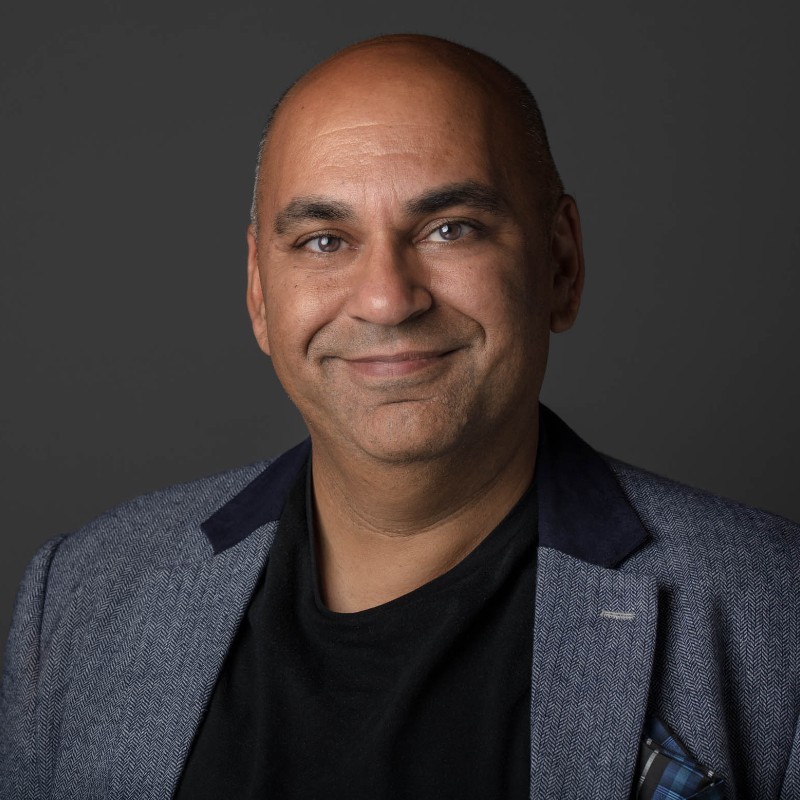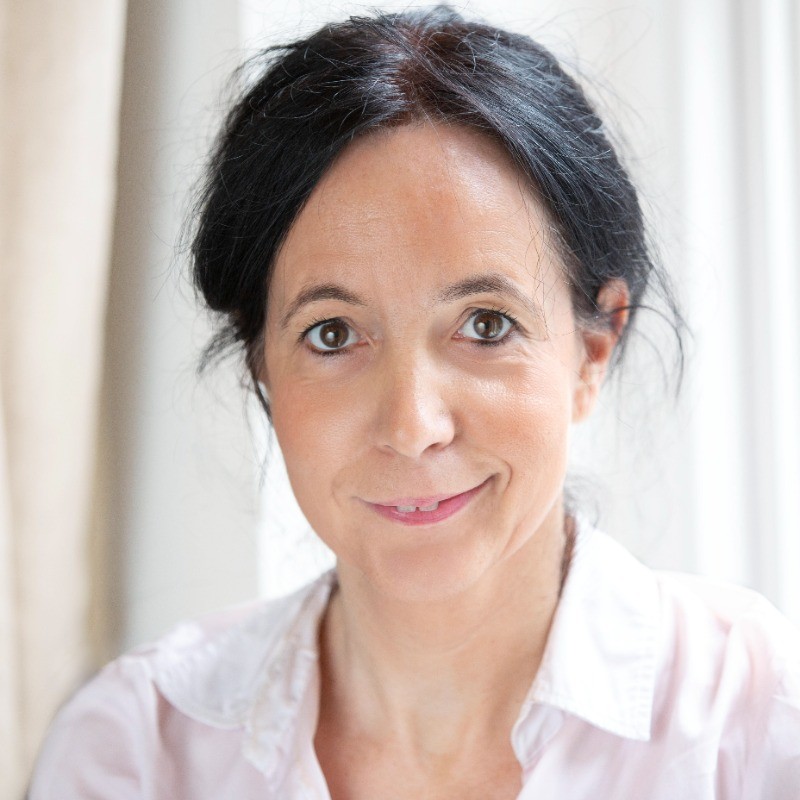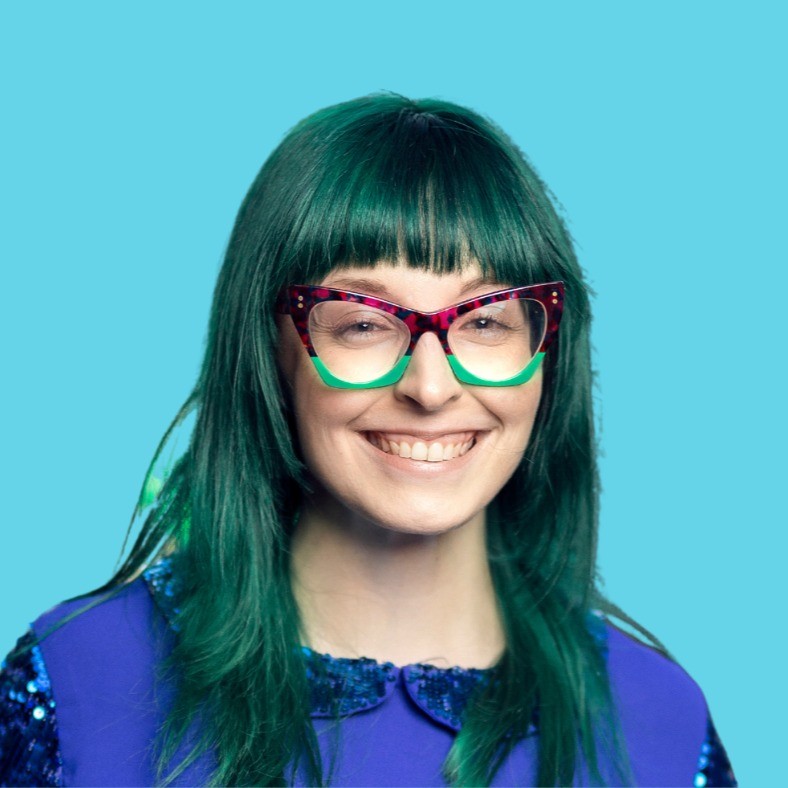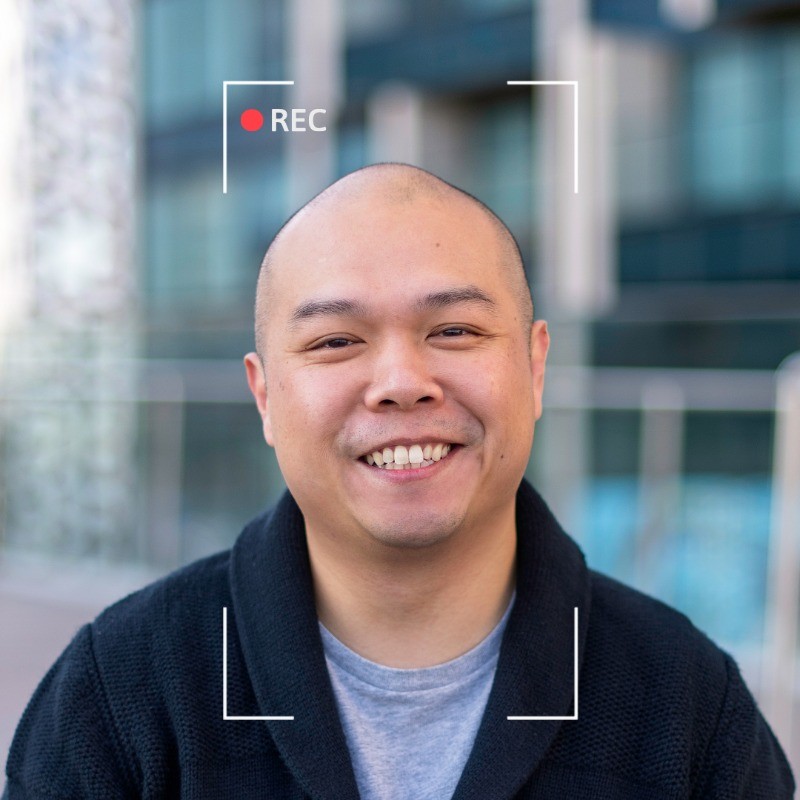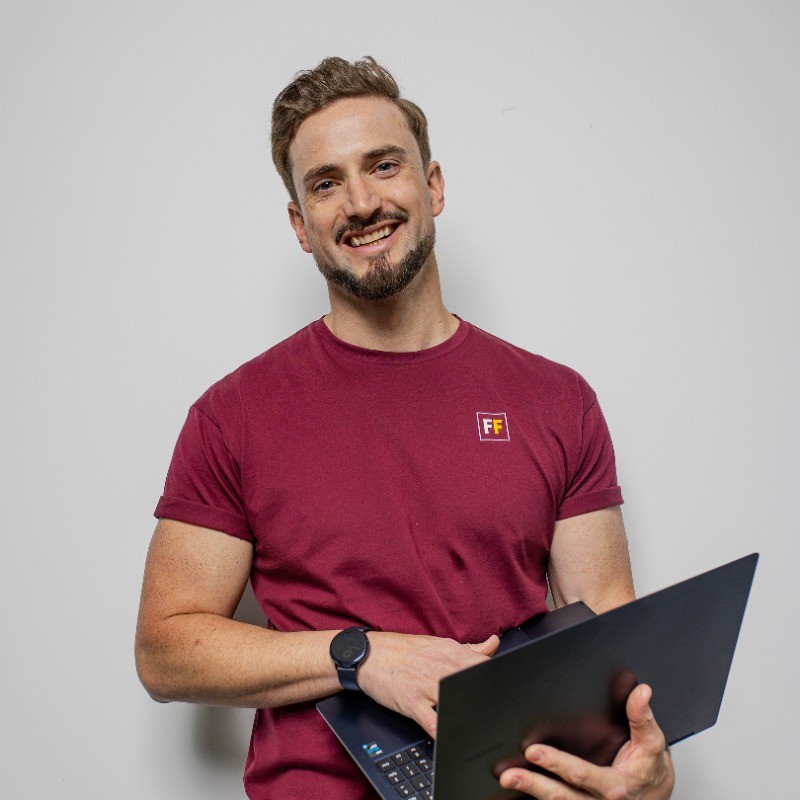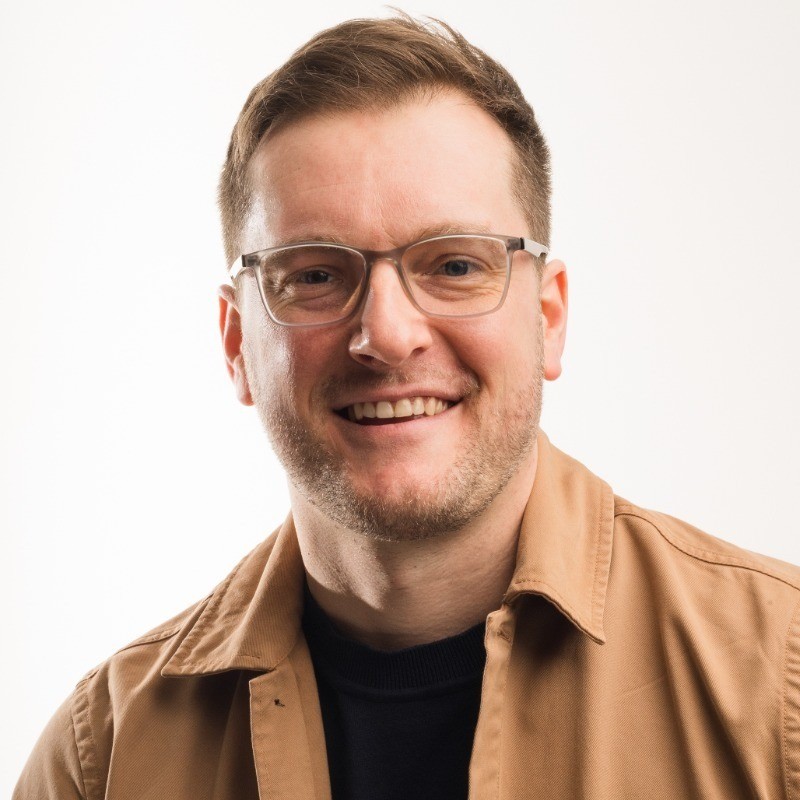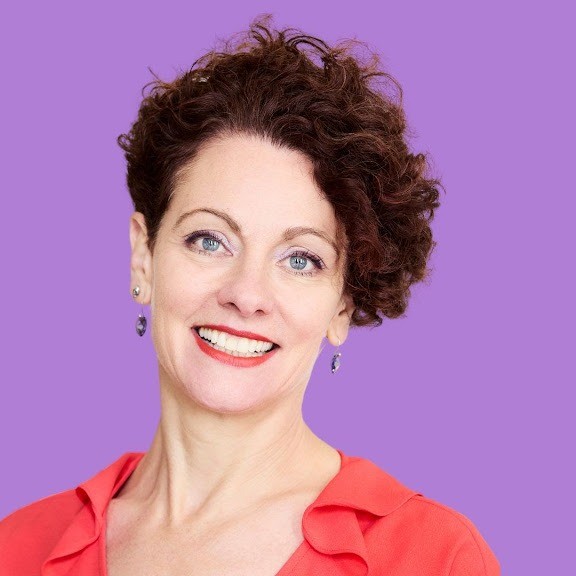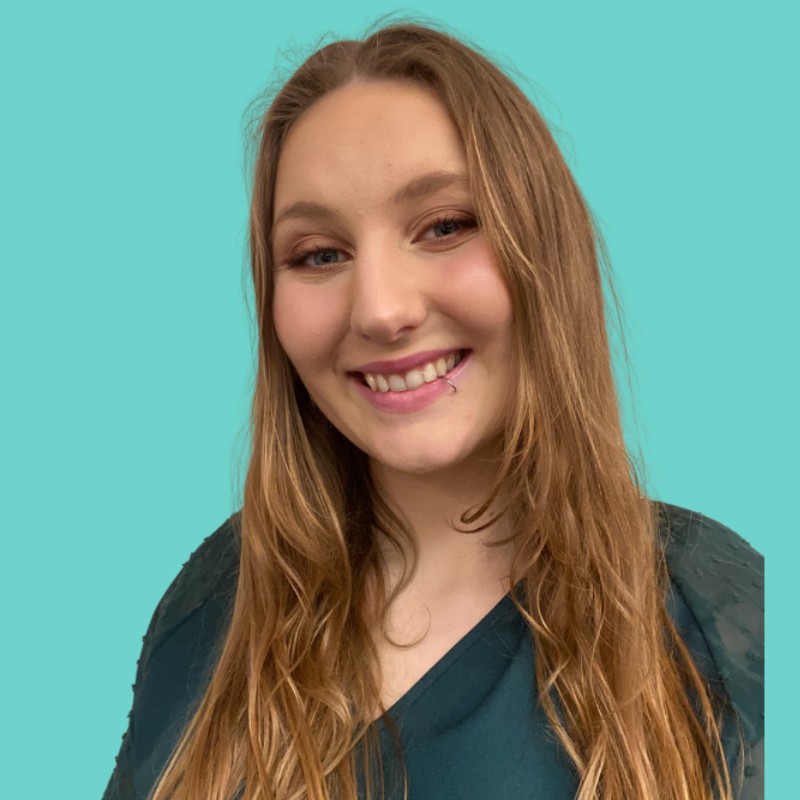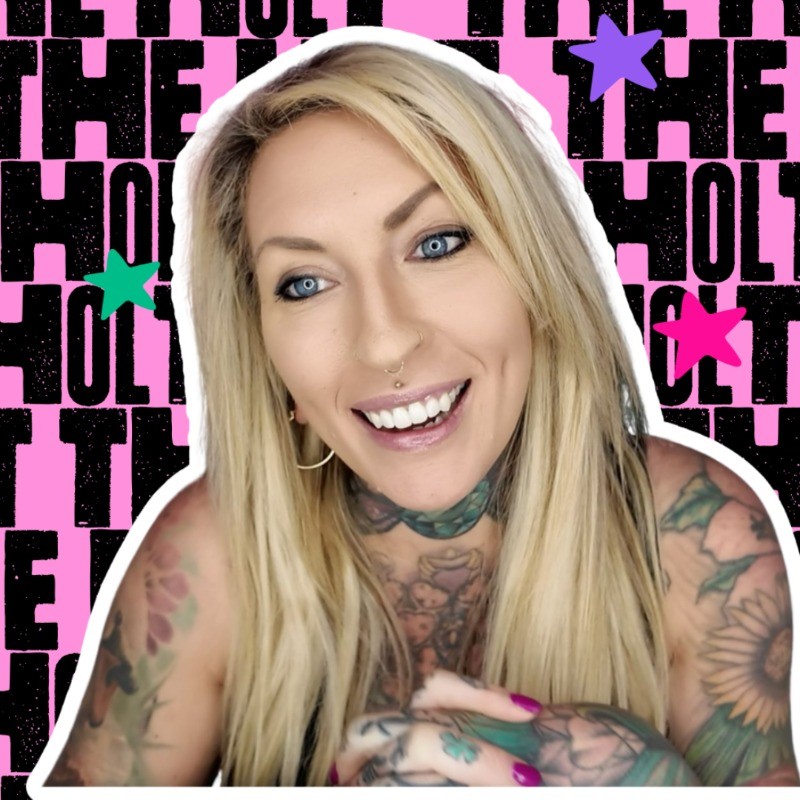B2B My Guest with Lea Turner
Charli Hunt: Hi, Leah. Thank you so much for being on B2B my guest. We are so excited to have you. Can you tell us a little bit about yourself?
Lea Turner: I am a LinkedIn trainer first and foremost. I also run a community of small business owners. online. I am a solo parent to an 8-year-old son, a keen traveler, and, an all around, hopefully fairly decent human being I would say.
Charli Hunt: You absolutely are. And you don't always come across fairly decent human beings on LinkedIn. How did you fall into being a LinkedIn trainer? Did you really decide that that's what you wanted to do or did it just come naturally?
Lea Turner: was purely by accident. I started using LinkedIn in October, 2019, uh, very, very reluctantly. And I absolutely hated it. But I needed some clients for my original business, which was transcription. I wanted to just grow it. I wanted some better clients and I didn't really have a marketing budget. So I thought, Oh, I'll give LinkedIn a go and dreaded it and hated it. And. the worst kind of LinkedIn content you'd ever imagine. Like all of the stereotypical super corporate stuff, very, very stuffy. And then I started to relax when I saw some more, lighthearted, friendly people showing up on my feed. And I posted a few more fun, quirky. real me kind of content and started getting a huge amount of traction very, very quickly. Within the first five months of being active on the platform and posting regularly, I'd had over a hundred clients. I'd grown my business from just me to me plus five freelancers. I'd got to about 25, 000 followers completely organically. from about 400 that I had originally and it was all coming to me. People were following me, connecting with me. And then when COVID hit my business, all my clients couldn't see their clients and I had no work for my freelancers. And as a solo parent, I panicked.
I was backed up against the wall. I thought, Oh my God, what am I going to do? There's not enough work for me. So I started charging people for the advice they were asking from me already. People were constantly coming to me saying, how are you doing this on LinkedIn? How are you getting so many clients?
And so I did what I had to do. And I started charging people to show them what I'd been doing that had worked really well for me. And it worked really well for them. And it just scaled from there to digital courses, to corporate trainings, group trainings, large webinars, speaking on stage, and then that evolved into growing a business community as well, because I could see it was something that people wanted, a much more laid back, fun, friendly,, anti professional, not that we're not professional, but a much more human, authentic, quirky, for the people that don't really feel like they've ever belonged in the business world. They are all drawn to the community that I've built called The Holt. That's the journey that I've been on. And it's been four and a half years now since I first started on LinkedIn. And it's gone quite well.
Been quite life changing. And let, let's say someone's listening to this and they haven't found you yet. What advice would you give them in terms of how to be themselves on LinkedIn?
The first thing is to drop your preconceptions of what LinkedIn was, like this super corporate stuffy jobs board for recruiters to, you know, tell everyone how great they are or just post about jobs. It's not like that anymore. It's still like that for people that never log on or don't log on regularly. So your news feed is a product of your behavior. So if you're never logging into LinkedIn and you're never engaging with anybody's content, your algorithm has no idea what you want to see. So it's just showing you a load of random stuff from people you probably don't know, or don't like, used to work with 10 years ago. So you have to start unfollowing and disconnecting from people that you don't want to see and start searching for people talking about subjects, that you didn't want to see. And. It very quickly changes the entire game. My newsfeed is full of , LGBTQ plus people talking about inclusivity and diversity. There's tons of fun HR people that do actually exist. There's lots of, coaches sharing their journeys. There's lots of recruiters having fun in the office together and actually being real life people and dog pictures, so many dog pictures on my, my LinkedIn and from videos and interactions and photos of people out doing things and talking about things I can learn from. It's not, I don't see the stuffy stuff. I don't see guys on fake airplanes with their Rolex and rented Lamborghinis. I don't see any of that stuff because my algorithm now knows me. That's the best thing to do when you're first starting on LinkedIn is, is marry condo the fuck out of your feed and get rid of anything that doesn't bring you joy or bring you education or some level of interesting conversation. If you get rid of that, you start making room for the good stuff to show up. And then it's not an effort to be there when you're actually interested in what you're seeing.
Charli Hunt: That's great advice. Thank you.
Charli Hunt: On the other side of it is posting things that really show who you are. How can you be authentic and bring things that are the real you?
And, discuss things that not everybody is discussing on LinkedIn without being too vulnerable.
Lea Turner: People have this misconception when someone's talking about a personal brand or, , authenticity. Do you have to be baring your entire soul? It's not true. It could just be the fact that in a post you mention your children. So people know you're a parent and other parents identify with you and relate to you because they've got something in common. It could just be mentioning a yummy meal that you went out for when you went on a client meeting and someone else goes, Oh my God. I love Thai food, right? It doesn't have to be bearing your soul. You don't have to be talking about your medical conditions and sharing photos of your children.
It's just little slivers of who you are beyond just the business. You're not just a logo and a brand name. You are a person and the things that make you a person are your passions, your interests, your struggles, your successes, your opinions. These are all things that contribute to who you are. And those are the things that people are interested in to build trust with you. You don't have to share any of those things. and actually expose yourself, which is something I always say, you're there for exposure, not to feel exposed. And everybody's comfort level is different when it comes to what they're ready to share. And you might find the more you post and the more you see content from other people, that that comfort level changes and you are willing to share more, but there's no obligation to, , people just want to see the personality and the bits that make you who you are without, this, corporate facade of you pretending to have your shit together all the time. It's okay to make mistakes because other people can learn from those mistakes and you're just humanized as someone that's just like them.
Charli Hunt: I really liked that exposure, not being exposed. Before you've trained your algorithm and when you're not seeing the people that match up with what you want to see, it's really easy to get distracted by the wrong metrics. How can people avoid focusing on those wrong metrics?
Lea Turner: It's really difficult because there's, there's a bit of a plague on LinkedIn with people who appear to be really successful and really popular with enormous numbers of likes and comments and impressions, which they use to sell their services. And it's important to realize that those aren't always real.
There are ways that people like to game their engagement. with using engagement groups. And telling people exactly the time of day that they post and everyone should comment at that time or reposting on all their secret company pages. So it looks like it's reached masses of people, um, or just using bots that they pay, you know, pay a service to engage with their content.
So it looks like it's gone viral. If you start comparing yourself to those people, you are, you're going to feel bad about yourself. And it's also not fair to compare yourself to people that have been doing it for years. It took me a long time, relatively, I guess it was quite a short time, but I started to learn what people wanted from me and what they enjoyed and what they interact with what could get good engagement and I started creating more content like that and it developed my voice, but it wasn't something I had straight away.
It took me time to, to learn that and to embrace it. But it's also important to remember that how many likes and comments you get on a post does not determine whether that post was successful. I've had the most leads for my business from the posts with the least amount of engagement. Sometimes you'll get posts that go big and they're great for building that awareness, that kind of top of funnel, people know who you are now, and maybe they're going to see more of your content. Maybe they choose to follow you. And then you get the opportunity to sort of sell to them down the line through your content. But ultimately the metrics that you should be caring about is Are people starting conversations with you in the DMs? Are you having conversations with your ideal clients? Are you being contacted for work?
Or are people showing up in your posts that are your ideal clients? Who's viewing your profile? Are they people from the industry you serve? Those are the things that are far more important. I've got people that I've worked with that have had clients off the back of their content that have under 200 followers. Because it doesn't matter, it's about having the right people that you can either learn from, teach, help, and they will hire you, or people that just make you want to spend time on the platform, or because it's more fun, because the more often that you're there, obviously, the higher the chance you're gonna stumble across somebody that might be a potential business opportunity. So people get lost in these big metrics, but biggest influencers that I know on LinkedIn and know quite well and have known quite well. They're not the people making the most money. And they might look like they're getting big engagement and they're hugely successful and they can talk a big game, but they're struggling to pay their bills behind the scenes they're making up stories about being featured in fabulous magazines that they paid to be in. They're, they're behind the scenes. They've got courses that they're then add you to an engagement group. And Oh, Oh, wow. My post went viral because it got 300 comments in the first three minutes it was published. That seems legit. So it's about staying in your lane and staying focused on what you're trying to achieve and not being distracted by popularity because popularity does not equal profit. It really doesn't. It can if you learn to monetize it, but there's a lot of people with a huge audience in a part of the world that can't afford to pay for the premium services that they offer. And you think, well, okay, that's great, but how many of them are buying? And the answer is fairly often, not many. So why are you on LinkedIn? Is it on there to be popular or to look popular, which is about as useless as, Monopoly money? Or is it about making money because you can't spend likes?
Charli Hunt: That's interesting. I was going to ask you why do you think most people are on? LinkedIn, but I think you've answered most of the question.
Lea Turner: I think most people are on there to sell but they're also, we're not on there with the mindset of buying but all of us do buy from one another because we get to know those people and when those people do something that we need that's the first place that we go because we, I mean if you know a guy that changes tires. And your car gets a nail through the tire, do you call a random person on Google or do you call your mate that you know? So that's why people are on LinkedIn, to build that this network of acquaintances and peers and friends, and it really does lead to real friendships. That's how we know each other. If I need something, the first place I go is LinkedIn. My hairdresser I got off LinkedIn. Everything. My copywriter, my email marketer, my community manager. Everyone that I have hired I have met on LinkedIn for the last four years. almost exclusively apart from probably the garage that I go to. however, I do know a very good garage, they just weren't close enough to me to do it. So it's amazing how you just create this massive network of people. And it's not just about, I would hire these people. If someone says to me, do you know someone who does this? I'm like, yeah, I do. And I know a dozen people that do it and can recommend them. So you're creating this actual. Professional network of people that is insanely useful. And even when you just need like a little bit of advice, you've got someone to turn to, or they've got a piece of content that you can refer to that's going to help you out. And it's invaluable when you're in, when you're running a business to have people at your fingertips that have the answers that you need. Or the skills that you need.
Charli Hunt: Yeah, I really like that. And we need to change our mindset to we're building a community on LinkedIn, not a following.
Lea Turner: I think that's where people have a real difficulty. Not most people, like the people that are on LinkedIn and really get it and are nurturing it and getting the best from it. They're those people that are there to help others as much as they're there to seek help, if not more. I do count myself as someone who's doing LinkedIn extremely well, because yes, I've got a big following, but it's not about the big following, it's about how I've harnessed that following to become a community, with 550 members paying me each month for a community that provides masterclasses for parties that have had hundreds of guests for raising hundreds of thousands of pounds for charity.
I've literally created a community around me that don't just support me, they support each other. That for me is where real, real impact happens, and that's where, you know, I've attracted amazing opportunities. Then there's also a lot of people that are out there with a following they have a following, but would they actually be able to influence 20, 000 people to donate combined 200, 000 pounds? to charity? Would they, have they really got people's hearts? Have they really built a community that genuinely cares about them? Or are they just popular because everybody wants to be seen to be associated with the popular people and really people are there associating with them because of what they feel they can get from that association rather than genuinely caring.
And I think for me, it's always been about creating a community that I care about, that cares about me and that care about each other. That feels better for me. It might not be the most sensible business model, but if I want to enjoy my business and running it and growing it, I want to be surrounded by people that I enjoy interacting with and not just hundreds of thousands of people that wouldn't care if tomorrow I dropped off the face of the planet. And ultimately that happens a lot. People just come and go from these positions of popularity and they're so focused on how impressive their profile numbers look that they'll burn out from it because it's empty at the end of the day. That it doesn't keep you company at night. It doesn't make you feel special, especially when you're gaming the system. So I think the long, the longevity of your success in business is having a very strong community. around you that you trust and that trust you because they were insurance policy. If anything goes wrong,
Charli Hunt: Yeah.
Lea Turner: you know?
Charli Hunt: And not only do you have 550 in your community, you also have 900 clamoring at the door and you've only had to kick three
Lea Turner: Yeah.
Charli Hunt: which I think is a good sign too.
Lea Turner: Yeah. Yeah. We've, we have a very strict no knobs policy. If someone is determined to be behaving like a knob to other members or to my team,
they're straight out the door. And I don't shame them in front of other members. They're not named or anything like that. I would never do that. I make it known that someone has been removed and the behavior that led to the removal because it makes the rest of the members feel safe. And they understand that I'm not putting profit before their experience, which is why we limit the numbers. We, let in 25 people every month. But we also let off the waiting list and they sell out in like six minutes, which is kind of scary. But we also let in referrals. So if you're already a member and you want to bring your friend in, you can bring them in. So we have that kind of sense of accountability because everybody who's referred in. We have the name of the person that referred them, so if they behave badly, like the person that brought them in feels bad. It's the reason that kind people are attracted to it because they feel safe. And, we've got a lot of people that are neurodiverse in there. We've got a lot of people that have varying disabilities, are quirky in their personalities. We've got, lots of LGBTQ people in there and it's, there's no judgment. It doesn't matter where you're from, what your beliefs are, who you love, the size of your body, your age, none of that matters as long as you treat everyone else with respect, and they really, really do. So in two years only removing three knobs, I feel like that's quite good going, to be fair.
Charli Hunt: It's amazing.
Lea Turner: Yeah, there aren't some knobs in there. They're just obviously hiding it quite well. Of the people that I've met and engaged with, I haven't met anybody, any of the others. They're all an absolute delight.
Charli Hunt: Even if they are knobs elsewhere in their lives, but they behave nicely in The HoLT, maybe that's a sign that if you have an inclusive welcoming community that also doesn't take any shit, that's how you get people to behave nicely.
Lea Turner: Yeah, I think that could be the key. There's always going to be slight disputes between members that I can't get involved in. We have a lot of people that post things on LinkedIn that I might not agree with, but if it doesn't happen within the community, I can't really be the one that says I don't agree with your opinion about this, so therefore you're out.
Charli Hunt: I don't think you have the personality to be a dictator, Leah.
Lea Turner: I've just got the outfit today.
Charli Hunt: You're so ready. So one of the things I hear people say they struggle with on LinkedIn is obviously sharing your wins and sharing your successes is really important. You want people to see that you can do a good job for them. How do you do that without being one of those LinkedIn show offs?
I think you're so good at it. You do it in such a way that makes everybody feel part of that success.
Lea Turner: And I think that's the key. It's, it's not making it about you. So if I post, Oh my God, I'm so amazing that I got this person a hundred thousand pounds worth of business. That's so self indulgent. That's like me, me, me, me, me. And it wasn't me. I've just helped them. to show them the way to do it. So I make it about the people that I work with. So I'll share a testimonial about the wins that they've had or a video that they've posted and I talk, or I'll talk about it on a video myself, about what they've achieved and how proud I am of them. It's for the reader to deduce it was my help that got them to that. But it wasn't me alone, but yes, I've had a hand in their success, but it's not my success.
And I'm proud of what they've achieved. They've put the work in, they've got the results that they wanted , and have achieved the results that they wanted. So it's about making it not about you. Because I'm here to support and help my clients and I want to see them win. When they hire me, I'm there because I want to see them succeed and I know they deserve it. So making it all about, oh, look at how great I am. And there will be people that will still read what I say and take it that way. Don't get me wrong, there's people that are determined that I'm an awful narcissist. But for me, it's always turning it back around to be about the people you're helping and how proud and thrilled you are for them. And making sure that you're there celebrating and supporting them as well. So I've got clients I've worked with three, four years ago that I'm still commenting on their content when I see it pop up and saying, Oh my God, I'm so proud of you, you're doing amazingly. And they'll reply to that and be like, I couldn't have done it without your help.
They're doing it for me. I don't need to constantly shout about my results because so many of my clients are really, really vocal in terms of posting and commenting and supporting me in return for the support that I've given them. So I think that's the key. It's just turn the focus of those posts, to other people, and how you feel about what they're achieving. And people will deduce your involvement. They'll understand that you've had a hand in it, but you don't have to pose it like that.
Charli Hunt: and make the work so good that it speaks for itself.
Lea Turner: Yeah.
Always going
over and above. Always over deliver. It's part of my mantra with business. My rates are high if you want to work with me, but I always over deliver and people leave sessions with me going, Oh my God, I knew it was going to be good, but I didn't know it was going to be that good that I've got so much going on in my head.
I've written so many pages of notes. And when you leave them like that. They shout about you, not just on LinkedIn, but
To their friends. I think that's the key is when you over deliver something, you blow their socks off and they want to tell everyone. And that's what we do with The HoLT, that's what I do with my LinkedIn training, my LinkedIn course. I always overdeliver. I'm a bit of a people pleaser at heart, and I always go over and above because I wanna make sure I leave people happy, but it works in
my favor.
Charli Hunt: The, good side of being a people pleaser.
Lea Turner: absolutely.
Charli Hunt: How do you be that people pleaser who goes above and beyond while also protecting your time? Because I don't think you could have done all the amazing things that you've done without being really protective of your time.
Lea Turner: The first year I wasn't, but it was COVID. So I really had nothing else to do when I wasn't looking after my son, it was like, well, I, I may as well just go all in because I've got all of this time to do. Not much else. So I really did pour every spare minute into driving the business forward.
And while COVID was a horrible, horrible period for so many people, I don't think I'd be where I am now if I haven't had the space to be able to do that because I was isolated at home because I was lonely. I was on LinkedIn lives. I was on clubhouse rooms. I was creating content.
I was engaging constantly because I could. Because I had the freedom to do that. I had the space to do that in my life. I'm a lot better with boundaries now. It's been a process. And I didn't get it right. I've given far too much for free, far too much of myself to things that didn't serve me, or people that were trying to take advantage of me. That's taken a lot of, tough lessons, I see it happening a lot with small business owners that I help . And I'm like, you need to say no to that. That's not one for you. You don't have to do that if they're not paying you. But you have to get to the confidence level where you are like, oh no, if I say no to that opportunity, I'm never gonna get that opportunity again.
'cause actually when you say no to opportunities, generally better ones come along and you realize that yeah, you might be doing this 'cause it's fun, but is it actually taking you in the direction you want to go? And if it's not, then as fun as it might be, is it really worth the energy and the time?
The last two years, I'd say. I just, I don't say yes to things if they're not going to serve me, which is why I've recently said I don't want to do public speaking anymore. While I don't mind being on panels, I do not like being on stages. And if I keep doing that, it's just taking me towards bigger stages, which yes, it's lovely big fat paychecks, but I don't like doing it.
I don't like doing it, why let my business travel in that direction? That's not the way I want to go. Maybe that's just me though. Cause I'm driven much more by joy than
Charli Hunt: It's worked out very well for both sides.
Lea Turner: Yeah, it has. Yeah, it absolutely has. But I realized that's not the same path for everybody. And I'm lucky to in some ways I'm grateful for the fact that I was on benefits and I lived. a very poor life up until the age of 35 when all of this started changing. I'm grateful for that because I know that I can be happy without loads of money. And while I do make a very comfortable amount of money these days, I'm not afraid to turn things down in pursuit of things that make me happy because I'm not afraid of living on an ordinary salary.
It doesn't frighten me. I'd rather be happy than rich. I feel happy and rich now. I'm not rich by other people's standards, but I'm rich for me and more than I've ever anticipated.
Charli Hunt: It makes me so happy to hear that you found the thing that you love doing for work. In your mid thirties as well. Cause I think we, with these Forbes 30 under 30 lists, these kinds of things, it makes you feel like if you haven't found that thing and that drive and what works for you before you're 30,
you might as well forget it.
And KFC was started by a man in his sixties.
Lea Turner: I didn't move in the business circles in my twenties, so I never saw that. I wasn't on LinkedIn. I wasn't in the corporate world. I wasn't in the startup world. I didn't see all of that hustle culture. So for me, the fact that I found it at all. I'm just like, oh, this is great. I used to sit typing up medical reports and building surveys for 10 to 15 hours a day. It was so destroyingly boring and my skills and my brain were massively underutilized. And I thought that was it. I thought I was going to be doing that till I retired. And so when this came along, I was like, Whoa, I've hit the jackpot. Like I get to create content. People read what I write and I love writing. And that's so much fun for me. And I've been able to travel and I've get to go to all these cool events. I've got this community full of. Awesome weirdos that have fun together and meet up and always are there to chat to one another and ask questions and advice. I feel so privileged to be able to do those things and earn a very comfortable amount of money to give me and my son a decent life. I've achieved way more than I ever thought . I never imagined in my wildest dreams as a teenager when everyone said, you'll never do this, you'll never do that, because you've dropped out of school, you're not going to university, you're covered in tattoos, you're not going to be able to. This is all a bonus for me .
Wildly over anything I could have expected or hoped for.
I wish I'd discovered it sooner I've really enjoyed the LinkedIn training over the years, but that's not the thing. That was the thing that led me to the community and the community is the thing.
And the charity that I work with Hope4, they're the thing that I'm really most passionate about making a bigger impact. There's a real process sometimes if you have to go through a few different iterations of your passion to find the one that it all clicks into place.
Charli Hunt: That's amazing. On LinkedIn, it's so easy to see people who've done something successful and you think, okay, that's working for them, I should do that. I should get into that thing. What advice would you give someone listening to this to say this is how you don't fall into that trap?
Lea Turner: I think you've got to be in touch with your own gut instinct. And really pay attention to what people respond to. So there's a lot of people that will say you need to do templates, have templates, it will make content creation easier. But the people selling you templates. are using templates and adding it to their engagement groups or their automations that suddenly get really popular. They see a post that's made from a template, get a thousand reactions and they go, Oh, well, templates must work. Oh, I'm glad you agree. Give some templates, templates to buy. You've got to figure out that actually those templates don't really work. They might make content creation simpler, but also every piece of content ends up looking the same and it's incredibly boring for people reading them. And your idle clients are not responding to those and jumping into your DMs. So, It's realizing who you're speaking to and understanding what they need to hear from you to want to work with you. Some of that's going to be personal stories that help them to build trust, some of it's just going to be advice and education, some of it's going to be social proof from people that you've worked with, but it's about you and your voice and what makes you different and Figuring that out as you go and realizing what people are responding to, what's creating conversations that are leading to those DMs of inquiries and doing more of that, but not expecting to have all those answers straight away. You're not going to be the final version of who you are as a content creator on day one. Day one for me was the most embarrassing, cringeworthy LinkedIn post ever. I look back on it now and go, Oh my God, was I, but now I can reel out a post in five minutes or less because I know exactly the voice that I'm using. I know what my network responds to and I know what I want them to do. as a result of reading my post or how I want them to feel, the action I want them to take. And it's a process of learning and not being sucked into what works for other people, because you aren't other people and what works for them isn't necessarily going to work for you. I'm a very sarcastic, humorous, quite dorky person. That's not necessarily going to work for 54 year old Barry, the accountant, because that's not his personality. So he needs to find out what works for him and what his tone of voice is and the kinds of people that he wants to attract.
Charli Hunt: I first started posting regularly on LinkedIn in 2020 and I don't even want to go back and look at those posts.
Lea Turner: mine on
a shelf in my office that one of my friends framed and sent to me, she printed out framed and sent it to me. And I looked at it like,
Charli Hunt: what does it say?
Lea Turner: God. It's literally like I have a plethora of skills across a myriad of industries, blah, blah, blah. It's like. the worst. And it was a one block paragraph with a couple of random hashtags and eight sympathy likes from people I used to work with.
Charli Hunt: Oh, they're probably so happy that they, that they liked your post. Now they get to see all your great stuff. On TikTok, I saw this video the other day called cringe mountain. So the idea is whenever you start something new, you have to climb cringe mountain and it's going to get cringier and cringier. We have this kind of overnight success thing, because nobody wants to see that cringy stuff at the beginning, but that's how you get there.
Lea Turner: It's a process. I think people just expect to be great straight away and you have to have the courage to be crap to start with and to get better. And it's really hard when you get to like your 30s especially, most of the things that you do in your life you're good at. You know how to cook a meal, you know how to drive a car. When was the last time you actually started a brand new thing where you were at ground zero, had no clue how to do it? It's rare that we do that and it feels really vulnerable to be bad at something.
It's the same with content creation, and honestly, most people aren't as crap as they think they are., Just introduce yourself, tell people a few random facts about who you are and share a nice picture and watch how people respond and if you're nervous about posting, say so, because everybody, almost everybody was nervous the first time they posted on LinkedIn.
People will relate to that and they'll go, Oh, it's brilliant. Don't worry about it. You'll love it here. Why don't you connect with such and such? Here's someone that you'd love their content. And it's quite surprising how people really show up for you when you just admit, well, this is quite scary.
So I was scared.
No one's paying attention until you're actually doing well. That's the thing. It's so much better to start on LinkedIn where you've got a small following where you can learn and be crap quietly because nobody's really paying attention And then as you get better and more people start paying attention your skills have improved. This is a great place to start quietly.
You don't start singing on stage at Wembley in front of 200,000 people. You'd probably start in your car with one of your mates and then you might progress onto a karaoke stage in the pub after a few drinks. And eventually, if you're really that good, you might end up on a stage at Wembley.
It's better to start on LinkedIn and no one's really watching and that's where you can make the big mistakes.
Charli Hunt: Another thing I come across a lot is people saying I don't think I'm interesting enough to post on linkedin So even if they're not nervous, they just think they don't have anything to share. How do you help people who are worried about that?
Lea Turner: What it's not true. Everybody's interesting too, if you give people the chance to be interested.
I've worked with hundreds and hundreds of people one to one over the past few years, and I've never met someone who wasn't interesting. People don't realize the things about them are interesting because not enough people are ever asked about themselves. And when I sit in a session and I say to someone, Well, what did you do there?
And what did you do there? And how did you get to this? And they start telling me stories. I'm like, oh, that was amazing. How on earth did you manage that? And they go, oh, I didn't realize. No one's ever said to them that this thing that you've done is inspiring or fascinating. They don't realize because no one's ever actually listened. And there are lessons we can all take from everything that we've experienced. Every single one of us has been on a slightly different journey from everybody else. And we have so much to learn from one another. And actually we love to learn about one another. We are such voyeurs in our lives.
We are fascinated by people and we're even more fascinated by people when there's something about them that we find in common. Like, when we can connect with something, we're even more interested in how they've navigated, or dealt with something, or what they've achieved, or what they've failed at, because it feels like we can see ourselves reflected in them, and we feel connected with them.
So I think, if you think you're not interesting, ask a friend. And do a timeline from when you started high school to now, think about all of the things, the bosses that you've encountered, the relationships that have gone wrong, the places that you've travelled to, the hiccups that you've overcome, the things that have gone really, really well that you didn't expect.
All of these things can be great content for LinkedIn that you learn something from or that there's an opportunity for other people to learn from you. But I don't believe anyone's not interesting. I just think that a lot of people have kept themselves so closed off that they've not given anybody else the opportunity to be interested in them.
We can't be interested unless you tell us stuff and it can be as mundane as your favorite pizza topping or coffee order. But if it's the same as my coffee order, suddenly I'm interested in you and I'm paying more attention because I've found something in common. And it really can be that basic. And it's a soy latte, if anyone's asking.
Soy latte.
Charli Hunt: I know what to get you next time you're in london
Lea Turner: No champagne.
Charli Hunt: Can you leave us with a top tip for LinkedIn?
Lea Turner: A top tip for LinkedIn, if you're creating content on LinkedIn, before you post it, go and engage with five people on your news feed, so that LinkedIn's algorithm knows that you're active, then post the piece of content, and then go and engage with more content. So it's like an engagement sandwich.
Comment before, post your piece of content, comment after, and reply to comments on your own posts. It will give your posts much more visibility. Scheduling is absolutely fine as long as you make sure to get online just beforehand. So if you scheduled a piece of content for 9am every morning just make sure you're online at 10 to 9 to do a few bits of comments.
Even if it's just replying to a few comments on your own post, but LinkedIn's algorithm needs to know that you're there and active because it's more likely to push content out from people that are active because it's going to then draw more people to that post. If I comment, you're there to comment back, and that's going to draw more people to comment back that they prefer content from people that are currently active.
Charli Hunt: Amazing. Great. So where can people find you? And if they loved you on this episode, how can they get on the very long wait list to join your community
Lea Turner: You can get on the wait list for the community at the-holt.com. Scroll to the bottom and you'll see the sign up link. You can also find me on LinkedIn if you look up Leah Turner or on the other socials at LeahDoesLinkedIn.
And it's Lea without the H, L E A DoesLinkedIn. That's Instagram, TikTok, don't use X. Threads, I'm quite active on threads. And Facebook as well, just look up my name, I'm everywhere.
Charli Hunt: Leah, thank you so, so much for being on. You are a podcast interviewer's dream. So thank you so much.
Lea Turner: My pleasure, thank you so much.
